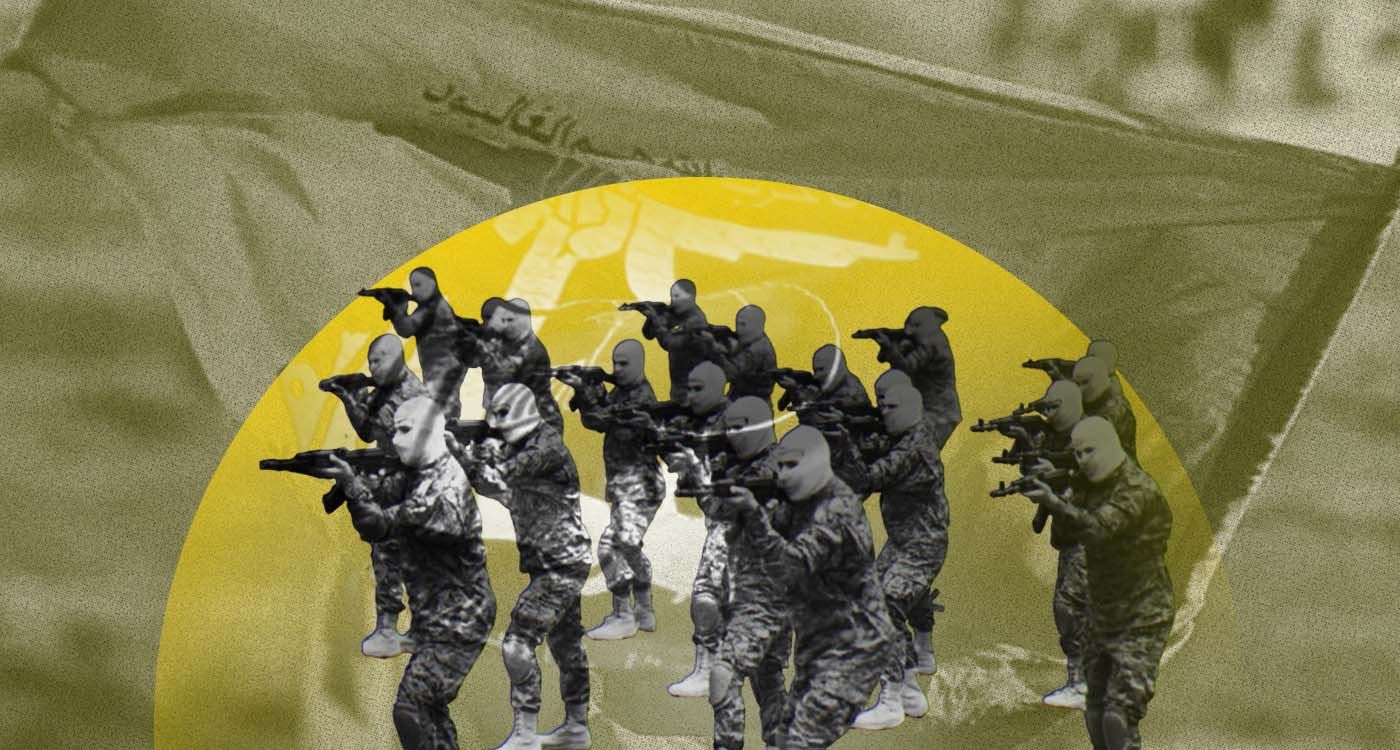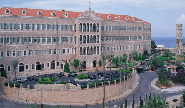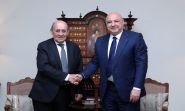
The question of disarming Hezbollah in Lebanon, long a political taboo, is now back at the heart of both political and diplomatic discussions. This shift comes amid mounting international pressure and a changing balance of power in the region. Although the topic remains deeply divisive within Lebanon’s political class, experts believe there are several realistic and structured paths that could gradually move the process forward. More importantly, a growing consensus is emerging, both locally and internationally, that no lasting reconstruction of Lebanon is possible as long as weapons remain outside the control of the state.
Disarmament, the handing over of weapons, the surrender the arsenal, granting the state a monopoly on the use of force... The wording varies, the intentions remain vague and the mechanisms uncertain. Even so, the message is being heard more and more clearly in the corridors of Lebanese power and in several Western chancelleries: the time has come to put an end to weapons outside the state’s control – starting with those held by Hezbollah.
Today, a draft executive plan that the government is expected to review during a cabinet session on Tuesday seems to be part of this growing momentum, barring a last-minute surprise. If the cabinet meeting does take place, and if a unanimous decision is made in favor of establishing a genuine monopoly of arms in the hands of the state, what would the practical steps look like? Is it even possible? Under what conditions? And at what cost?
According to information leaked to some local media outlets, the Lebanese authorities are said to have drawn up a four-phase plan, spread over 120 days, to disarm Hezbollah as well as the Palestinian factions present in the country. The timeline closely mirrors the American roadmap, which also sets a four-month deadline to reach this goal. But there remains a wide gap between drafting a plan and putting it into action. Hezbollah’s current stance; the statements by its Secretary-General, Naim Qassem, the ambiguity shown by President Joseph Aoun and Parliament Speaker Nabih Berri, and the regional power balance leave little room for optimism.
Still, a resolution is not entirely impossible according to several observers. They see in the current situation (widespread public exhaustion, Iran’s increasing isolation and growing diplomatic engagement between Riyadh and Washington) a narrow but genuine opportunity to start a gradual disarmament process. That said, for this to work, the process must be credible, carefully managed, supported by internal consensus, and backed by firm yet coordinated international pressure.
Possible Approaches
Several options could be considered. Among these is the gradual integration of some Hezbollah fighters into official state institutions. According to an expert familiar with the matter, a mixed elite unit could be created, bringing together members from both Hezbollah and the Lebanese Army, all under the unified command of the military. At the same time, an individual integration program would allow certain fighters to join the army, Internal Security Forces (ISF) or General Security (GS) after a process of selection and training.
A professional retraining plan, supported by the United Nations (UN) or an Arab fund, could offer concrete alternatives to other members of Hezbollah’s military apparatus through civilian employment, social reintegration or economic support.
A second scenario, which could complement the first, involves gradually dismantling the arsenal, according to the same source. Disarmament, they say, cannot be rushed. It would require a phased approach, starting with a confidential inventory of weapons overseen by a joint Lebanese-UN committee. Heavy weaponry could then be handed over to the army bit by bit, while certain sensitive areas (particularly in South Lebanon) would be declared demilitarized zones under strengthened supervision by the United Nations Interim Force in Lebanon (UNIFIL), with an extended mandate.
If such conditions are met, Hezbollah’s withdrawal from regional conflicts could become a reality. Its gradual pullback from Syria, Iraq and Yemen would be a crucial step, linked to a possible normalization of relations with the new Syrian regime.
This also requires effective control of Lebanon’s borders, particularly with Syria, through an official border demarcation, strengthened checkpoints and international monitoring of ports, Beirut airport and land crossings, according to the aforementioned source.
“This kind of process simply won’t succeed without a broad political agreement between Lebanon’s different groups, based on a new national pact,” the same source points out. This agreement would need to clearly establish the state’s sole authority over weapons and officially end Hezbollah’s armed exemption. “To make sure this is properly enforced, some form of outside diplomatic oversight would be essential. Bodies like the United Nations, the European Union, the United States, France and Arab countries such as Egypt and Qatar could act as guarantors,” the source adds.
In return, the expert adds, a gradual lifting of certain economic sanctions, support for reconstruction and recognition of Hezbollah’s political role could be negotiated.
Any potential disarmament would also require a profound transformation of Hezbollah itself, even though from an ideological standpoint, this seems unlikely. By giving up its military wing, the group could reposition itself as a political and social actor, continuing to operate in areas such as education, health and development, but under state supervision. “Much like the reinvention of Sinn Féin in Northern Ireland, a political transformation of Hezbollah would offer a dignified way out, avoiding direct confrontation while preserving its social base,” the source adds.
However detailed and well-structured these scenarios may be, they ultimately depend on one crucial factor: whether Hezbollah (and more broadly Iran) is willing to accept them. Beyond theoretical possibilities, this essential question remains unresolved and will determine any real progress on the ground.
Can We Really Expect a Voluntary Handover of Weapons?
“The short answer is no,” says Khaled Hamadeh, a retired army general and the director of the Regional Forum Consultancy and Studies (FSC), speaking to This is Beirut. “Hezbollah’s position remains steadfast. Qassem, along with the Jaafari mufti, Sheikh Ahmad Kabalan, continue to declare ‘victory’ in South Lebanon and stress the ‘necessity’ of retaining their weapons as a ‘means to protect Lebanese territory’.”
“Amid rising tensions with Israel and intensified strikes along the southern border, any voluntary disarmament appears completely off the table,” Hamadeh explains. Hezbollah views itself as Lebanon’s defender against Israel, and even partial disarmament is framed in its rhetoric as a direct challenge to its legitimacy.
So, forced disarmament? Another scenario would be a coercive disarmament of Hezbollah by the Lebanese state or its army; something many see as a dangerous fantasy. Not just because the army is politically divided on the issue and simply not equipped to take on Hezbollah militarily (it is already stretched thin across several fronts, including internal security, which usually falls to the ISF), but mainly because, as some fear, such a move could spark a civil war.
General Hamadeh warns, “For now, there is no sign that an executive plan will be implemented to seize or receive Hezbollah’s weapons, or those of the Palestinian groups. Any talk of a 120-day timetable has yet to be translated into an actionable plan and is therefore pointless.” He also believes that the ministerial meeting scheduled for Tuesday, August 5, may not take place, as long as Berri and Hezbollah have not officially committed to the process. “This effectively places the executive branch under the authority of the legislature, which goes against the Constitution,” he laments.
Other possibilities? It is not out of the question that the authorities might opt to roll out the plan partially, focusing on the first two phases, to send a signal to the Americans and ease their demands without directly provoking Hezbollah. However, this move could be seen as a stalling tactic, potentially irritating Washington.
Indeed, the stakes go far beyond Lebanon’s borders. General Hamadeh warns that if Tuesday’s meeting fails, it could trigger a chain reaction internationally, ranging from changes to the UNIFIL mandate to sanctions against Lebanon or even diplomatic isolation. “The international monitoring committee might suspend its work and the US could encourage Israel to step up the pressure as a clear message about the consequences Lebanon faces for failing to act.” A military escalation in South Lebanon, he adds, cannot be ruled out.
Given this situation, General Hamadeh criticizes President Aoun’s stance and Speaker Berri’s ambiguity. “They are trying to come up with interpretations and excuses to avoid taking action, even though internal stability depends on external stability. It is inconceivable to talk about sovereignty and diplomatic dignity for a country subject to sanctions, armed militias and a hijacking of political decision-making.”
Today, the time has come for the state to make a choice and for the Lebanese people to see whether this plan is just another smokescreen or the beginning of a return to sovereignty.




Comments